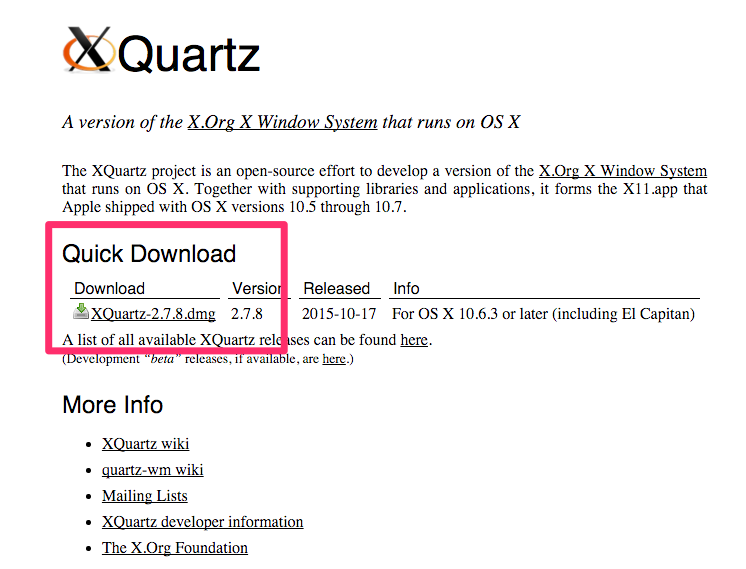


Maybe my favorite part of brew is that it installs everything in /usr/local/Cellar, but symlinks everything to usr/local/bin, which is on $PATH by default, so you don't have to worry about managing it or ending up confused because the new tool you installed doesn't seem to be installed. Applications' self-update features work as usual, so for frequently-updated apps like firefox, it's more just a way to install, as the app will independently keep itself up-to-date. iterm2 or flycut or font-fira-code or most any non-Apple app you have on your computer.
Brwe install xquartz update#
Everything is pretty reasonably named, too, although there is more of a difference between update and upgrade than the names imply.Įven if the command line still makes you nervous, homebrew is a pretty gentle (and useful!) introduction, and with cask, you can install easier-to-see things, e.g. Since brew and brew cask are so parallel, it's pretty easy to remember how they work (or find out if you forget). More basic, useful commands: brew help # see available commandsīrew update # update internal list of packages and versions (including cask)īrew search git # search for utilities and applications with "git" in the nameīrew info git # show package version, homepage URL, dependencies, options, etc.īrew upgrade # upgrade all outdated command-line utilitiesīrew cask install rstudio-preview # install preview version of RStudioīrew cask upgrade # upgrade outdated applications installed with caskīrew cleanup # delete old, unneeded files downloaded by homebrew (only once ever) in the terminal and then to install XQuartz, just brew install xquartz (It runs a script from the internet, so I won't copy it here so you at least know you're getting it from the source.) Once homebrew is installed, to add cask, just run brew tap homebrew/cask If you're just getting started with homebrew, install it by copying the terminal command in the first link above. And let's face it: Unless it's really easy, there's no way any of us will possibly keep git or curl or other things that don't self-update up-to-date, and for the sake of security we usually should. The advantage of homebrew is that it's a full-on package manager, so it not only makes it easy to install things all in one place, but also makes it easy to keep them updated. A quick way to install XQuartz is with homebrew via homebrew cask.


 0 kommentar(er)
0 kommentar(er)
